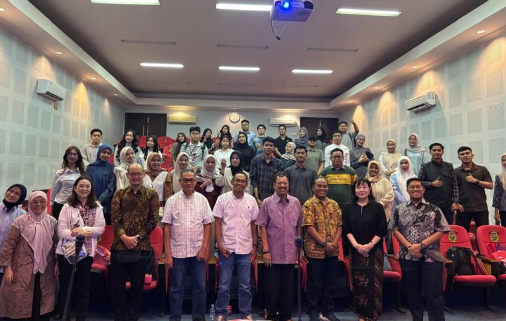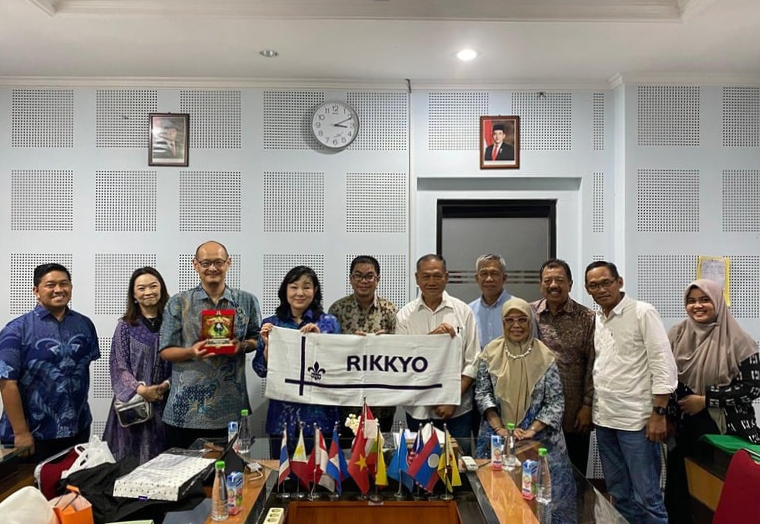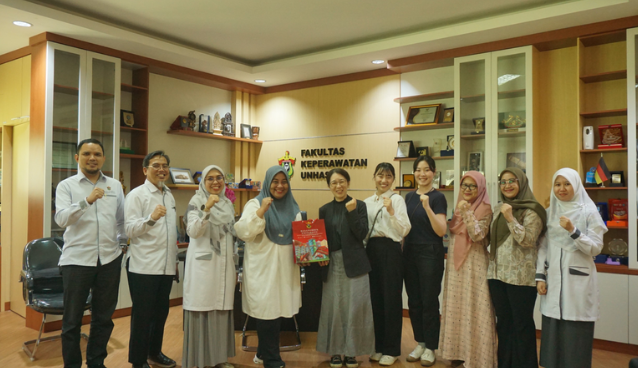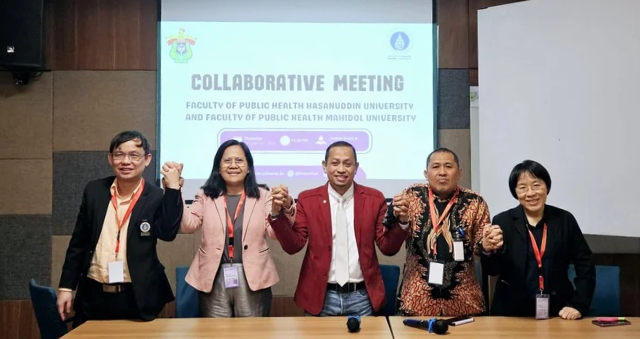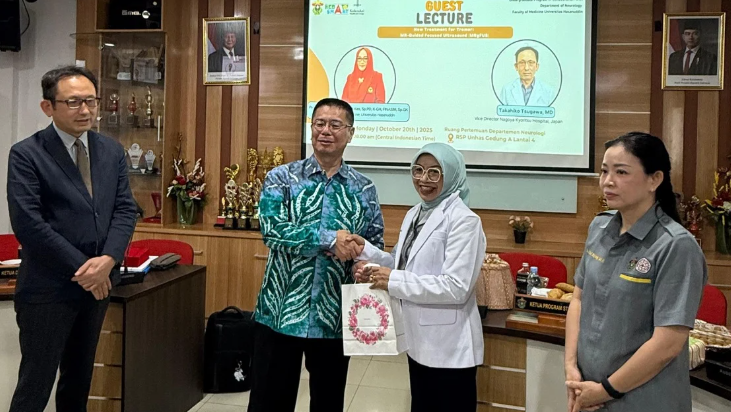The Department of Nutrition Science, Faculty of Public Health, Hasanuddin University (FKM UNHAS) held a guest lecture entitled “Learning from Japan: Food Safety Management in School Feeding Systems” on Thursday, 23 October 2025 in room K-225 on the 2nd floor of FKM UNHAS. The event was opened by Prof. Anwar Mallongi, S.KM., M.Sc., Ph.D., Deputy Dean for Partnership, Research, and Innovation at FKM UNHAS. In his opening remarks, Prof. Anwar emphasized the importance of cross-border learning to strengthen food safety systems in school environments in Indonesia.

The event was attended by over 100 participants, both in person and online via Zoom Meeting, including several participants from Japan. Also present was Prof. Dr. Ir. Dorothea Agnes Rampisela, Professor at the Faculty of Agriculture, UNHAS, who addressed issues related to food safety and nutrition for schoolchildren.
The main session featured speakers from Toyo Foods, namely Ms. Momoko Fujii (Registered Dietitian) and Mr. Kuriwaki Kei (Representative Director, International Child Nutrition Promotion Association), accompanied by two deputy directors of the company, Mr. Noro Shoji and Mr. Oki Yukata. In her presentation titled “Hygiene Management About School Lunch Centers in Japan,” Ms. Momoko Fujii explained how Toyo Foods—a school meal provider established in 1966—has maintained a track record of zero food poisoning incidents for 58 years. According to her, the key to success lies in the implementation of strict protocols from the raw material reception process, washing with a three-compartment method, to setting the cooking temperature to a minimum of 75°C for one minute to ensure food safety.
She also emphasized the “2-hour” rule, which states that food must be consumed within two hours after cooking. “Every 75 minutes, food can be exposed to unsafe temperatures,” said Momoko. She added that hand hygiene is the most important aspect of the entire food processing process. “Washing hands before and after each stage of work is the key to preventing cross-contamination, especially in a tropical climate like Indonesia,” she said. Additionally, Toyo Foods implements strict contamination control measures, including the use of different gloves and aprons depending on staff duties, and keeping kitchen doors closed during food delivery to schools.
Meanwhile, Mr. Kuriwaki Kei explained the sanitation standards for tableware in Japan’s school lunch system. He described the cleaning process, starting with the use of detergent and warm water, rinsing with clean water that is changed regularly, and disinfecting with water heated to at least 85°C or a sodium hypochlorite solution for a certain amount of time. The cleaned utensils are then dried in a sterile area and stored in a closed cabinet, and may only be touched with clean gloves or tongs. The entire procedure refers to the guidelines of MEXT (Ministry of Education, Culture, Sports, Science and Technology) and MHLW (Ministry of Health, Labor and Welfare).
This activity supports the Sustainable Development Goals (SDGs), particularly SDG 2 (Zero Hunger) and SDG 3 (Good Health and Well-being), which emphasize the importance of access to nutritious and safe food for school children. In addition, the collaboration between FKM UNHAS and Toyo Foods is also a concrete implementation of SDG 17 (Partnerships for the Goals), by strengthening international networks in the field of nutrition and public health. Through learning from Japan, FKM UNHAS is committed to developing an effective school food safety system in Indonesia. “We hope this experience will inspire the entire academic community to create healthy schools with safe, nutritious, and sustainable food distribution systems,” said Prof. Anwar Mallongi, closing the event.
Source: International Office of Hasanuddin University

